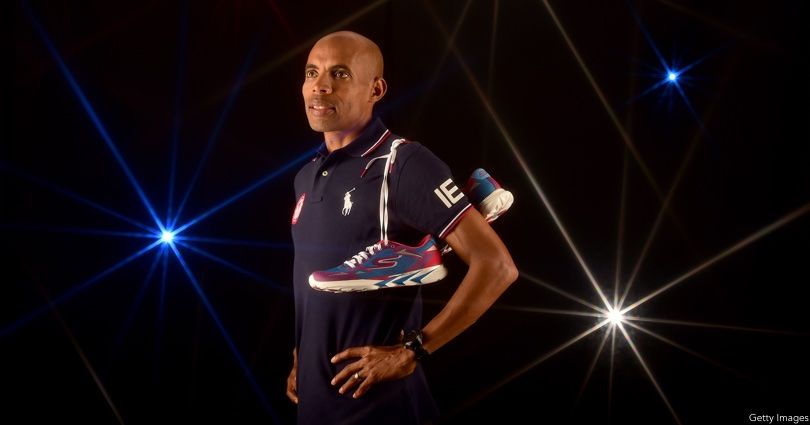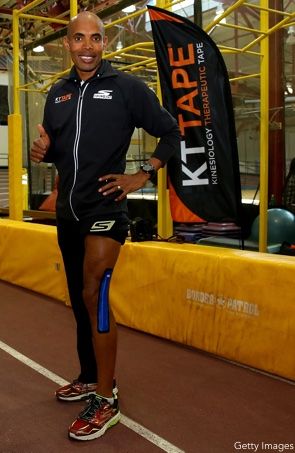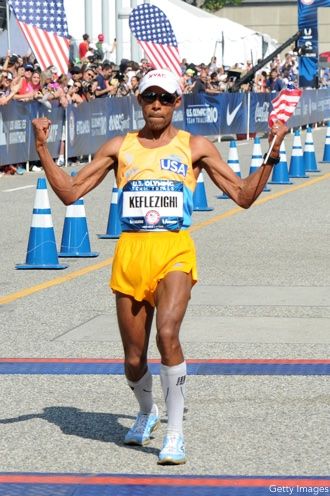Want to be an elite marathon runner? Try to train like Meb Keflezighi.
"I run about 100-130 miles a week," Keflezighi says. "I started in high school with 25-35. I do about 7-10 weeks of 100-130 in preparation for a race. As I age, I have to make sure I am healthy and can recover. I have run over 100,000 miles since 1993. You just got to be healthy."
Just be healthy ... and run more than 100 miles per week, and everything will be all right.
Keflezighi, 41, is participating in his fourth Olympics. He finished 12th in the 10,000 meters in 2000, won a silver in the marathon in 2004 and finished fourth in the marathon in 2012. On Sunday, he will run the first marathon of his career in South America.
Keflezighi also won the New York City Marathon in 2009 and Boston Marathon in 2014. The Eritrea-born refugee, who came to the U.S. in 1987, is arguably the nation's greatest marathoner in history, and he is not letting up into his 40s. Keflezighi attributes that to a change in his preparation as he ages.
"I used to do swimming and lots of bicycling," he says of his cross-training routines. "But now I do elliptical. It's fun because of instead of doing 30-minute runs in the afternoon, I use the elliptical for an hour and a half to two hours, and it has no impact on my joints. I love running on soft surfaces as much as I can. By running on dirt and grass, you define more muscle."
Food matters too.
"I eat lots of whole wheat and whole grains," he says. "When I was 24 or 25, I could eat whatever I wanted, but no longer."
"I like to have steak, mashed potato and asparagus," Keflezighi says of his favorite meal. "Be able to eat something within 15 minutes. Have something right away because the sooner you get something into your body, the sooner you start your recovery."

Perhaps the most interesting part of Keflezighi's routine is when he is doing nothing.
"I take time off," he says. "Why do I take time off? It is good for the body. If you're feeling lethargic and feel like your legs are rubbing against each other. As you do it more frequently, it gets easier.

"[I take] at least two and a half weeks after a race. Give it time. Your fitness will not be lost by taking three weeks off after a race. It is going to do you good by taking time off and not enough people do it."
Keflezighi reiterates that when he takes time off, he literally shuts it all down for two to three weeks. That means zero running.
"I miss it, and that is what you want," he says. "That's how you know it is time to go back. Treat yourself to some sweets."
Keflezighi will take that time off next week. This week, he's prepping his body to run along the center of the earth. Keflezighi finished second at the U.S. Team Trials and is expected to compete for a medal in RIo.
Win or lose, a big Brazilian steak will be waiting for him out the finish line.
Keflezighi spoke to ThePostGame before the Olympic blackout, through his partner, KT Tape.
More Olympics:
-- Landon Donovan: U.S. Men's Soccer Absence From Olympics Is 'Disturbing'
-- Watch 15-Year-Old Michael Phelps Predict He'll Win Gold Medals
-- How Simone Biles Got Started In Gymnastics -- It Was By Accident
Follow Jeffrey Eisenband on Twitter @JeffEisenband.






